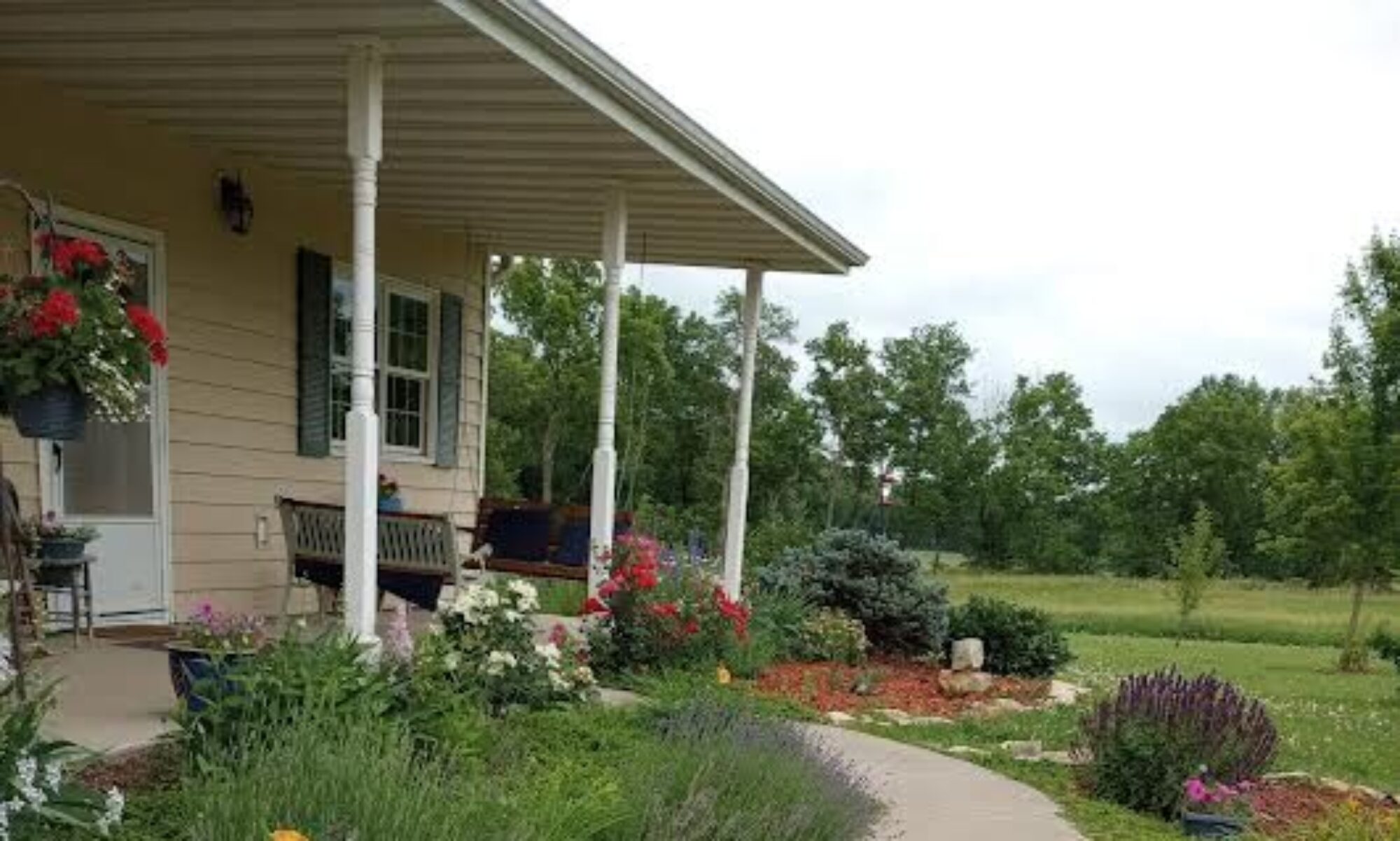A terrible commotion was coming from behind the cabin.
Our guide, Dr. Paddock, the Old Testament prof at Manhattan Christian College, had led our group down the small knoll, the journey lit only by the guide’s lantern. We had approached a small cabin, the staged home of Mary and Joseph. Through the window, we could discern a couple sitting at the table, apparently enjoying their evening meal.
Immediately the source of the commotion became clear, as out of the darkness a white horse appeared, running full speed toward the onlookers. Wide-eyed the group gasped in unison. Before charging the onlookers head-on, the wild steed took a sharp left and disappeared from view. As the horse and rider hurtled past the startled audience, we caught a glimpse of a disheveled soldier hanging on tightly, his helmet dangling precariously from his head.
Without missing a beat, Dr. Paddock turned to his shocked audience. “Now, that would be the Roman soldier, he explained. “He was supposed to tell Mary and Joseph to go to their home place to register for a census.” With great composure, he continued to explain the census and the importance of the decree to the young couple behind the window.
Inside the house, we could see Mary and Joseph packing their belongings into a cloth satchel. We watched as they came out of the house, loaded the donkey, and began to walk away.
At this point, Dr. Paddock, our guide, turned from the scene and began to explain as we walked back up the knoll to the barn, “We are going to an inn this evening and will try to find a room for the night. Follow me.”
I lagged behind the group wanting to check on the poor horse and rider. In the darkness I could see them emerge from the barnyard. The soldier was carrying his helmet; his uniform was a bit torn and dirty.
“Are you ok, Ryan?” I whispered. I had chosen this particular student as my soldier because he was a skilled rider. He had had lots of experience training and breaking horses. But Shiney, my Arab, was a bit unpredictable, even for an experienced rider.
“Yeah,” my soldier grumbled. “I was talking to my sister over by the manger, and I lost track of time. When I saw the group coming, I ran back to the horse, but just as I jumped on her, she bolted. I guess I scared her,” he said disgustingly. Cowboys don’t like nervous horses much. He motioned to the darkness of the barnyard. “She lost me out there by the water tank. But I caught her again, easy.”
Yep, easy-does-it worked for Shiny; cow-boy was just not her style. I helped Ryan straighten his costume, dust off, and get his helmet back on securely. Shiny was still a little agitated and nervous, but Ryan would be more careful now; she had gained his respect.
The rest of my group had gone to the barn by now, so I decided to go down to the pole shed area to join another group waiting to begin their tour. A large bonfire was burning brightly and warmly. Parents, children, and college students were gathered near the fire.
We were in, what I call, our Third Phase of the not-yet-named Bethlehem Revisited. Every year we were finding more interest and enthusiasm for our Christmas pageant, and we found it was impossible to take one large group around.
The groups had become too large. People could not hear what was being said, and it took too long to get the large group assembled at each of the six stations. The best solution we could come up with was to break people into smaller groups and have guides lead them through. It was a big step in logistics and demanded that we have guides who knew scripture and were accustomed to speaking and shepherding people.
Our little college was quite involved in those mid years, and this year we needed an actual script for the guides. Dr Paddock the Old Testament Professor from Manhattan Christian College pulled one together for us entitled, “The Annual Swihart Christmas Pageant: December 15, 1996.”
The very first guides of this new phase were three professors and their wives from the college. Our cast was made up of college students, many of whom had been given the choice by one of the professors of either writing an eight page report for their final Bible assignment, or being in the pageant. Of course, we had a good supply of volunteer cast that year. Jim, the surly innkeeper and staunch visionary of our group, called these sometimes unpredictable cast members “conscripts” which seemed to be a fitting description for them.
You could call us a rag-tag, but joyful and expectant, a mixture of people: the visionaries, the professors, the conscripts, all under the leadership of a very mighty God who empowers with His Spirit and makes His message come alive.
